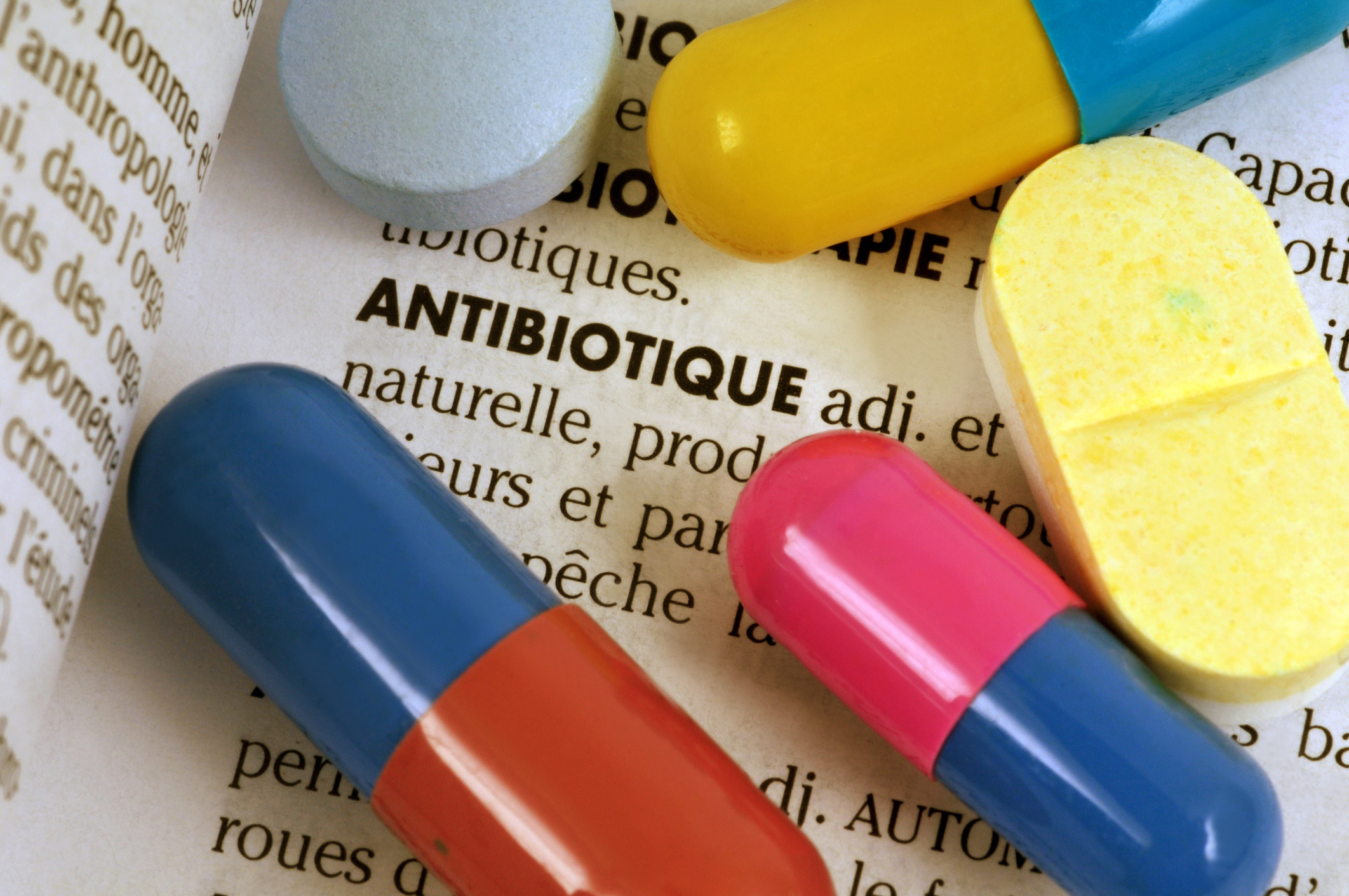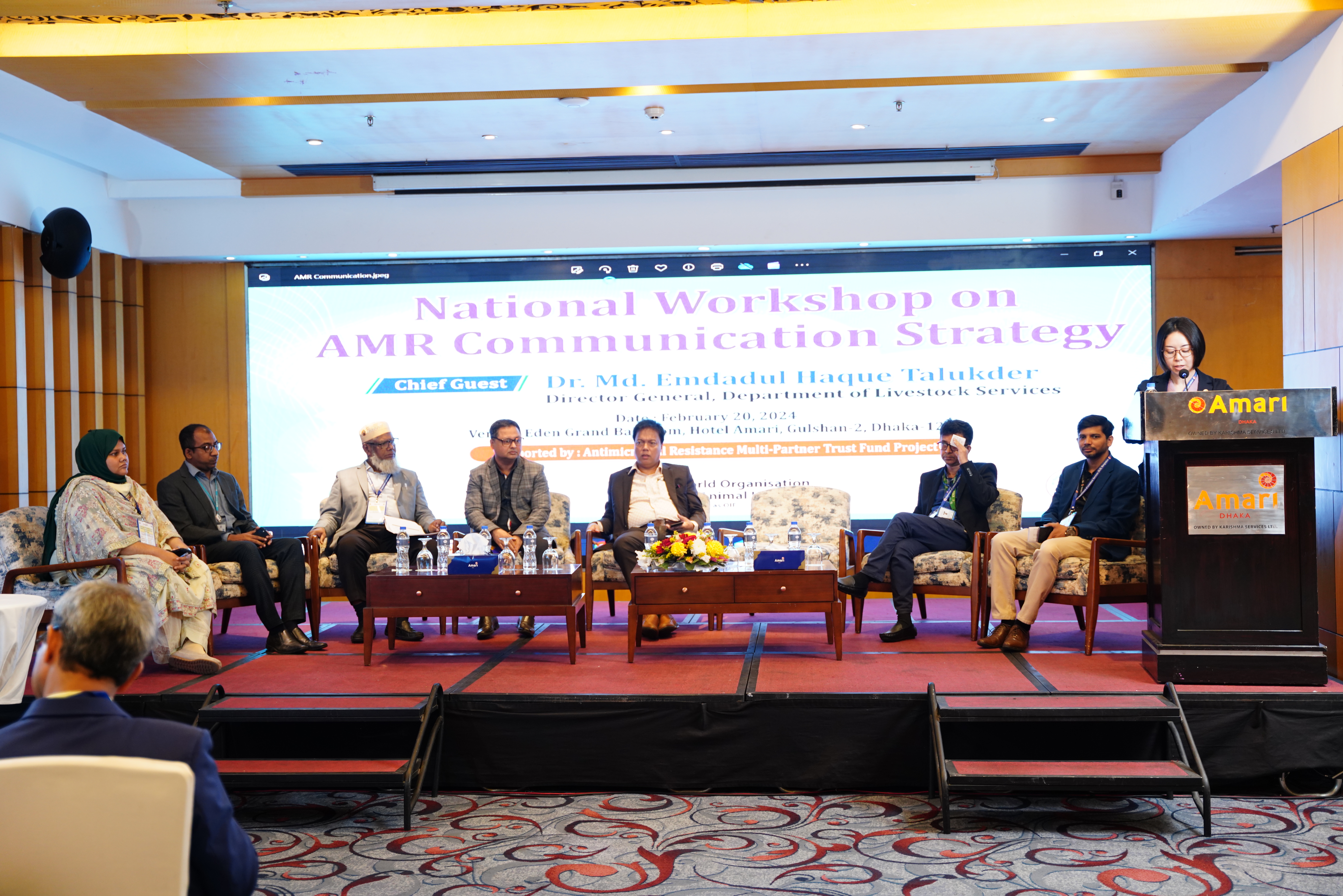
Bangladesh has the highest density of humans and animals globally. Identified as a potential hotspot for a waterborne AMR epidemic, only 35% of the population in Bangladesh has access to handwashing facilities at home and 48% have access to basic sanitation services – many in dense urban areas (WEF, 2021). Antimicrobials may be used extensively due to weak infection prevention and control and biosecurity practices and wide availability of watch and reserve group antimicrobials.
Unethical pharmaceutical promotion and weak regulatory oversight contribute to overuse. AMR is increasing in Bangladesh with challenges in healthcare and misuse/overuse of antimicrobials, posing a regional and global threat. Resistant pathogens are found in hospitals, community settings, farms, and the environment.
Mr. Sayeed Mahmood Belal Haider, Honorable Secretary, Ministry of Fisheries and Livestock (MOFL) was present as the chief guest and inaugurated the workshop. Alongside, the workshop was graced by the Dr. Md. Reajul Huq, Director General, Department of Livestock Services (DLS); Md. Ashraf Hossain, Director, Administration, Directorate General of Drug Administration (DGDA), Dr. Md. Abu Sufian, Chief Scientific Officer, DLS; Dr Kinzang Dukpa, Regional One Health Coordinator, WOAH; Mohammad Aftab Alam, Secretary General, Animal Health Companies Association for Bangladesh, and Dr. Md. Nure Alam Siddiky, National AMR Consultant, WOAH.
The workshop was also attended by 60 participants representing a variety of organisations including the Department of Livestock Services (DLS), Directorate General of Drug Administration (DGDA), and Department of Fisheries (DOF). Besides, the workshop was also attended by representatives of the Quadripartite (WOAH, FAO-ECTAD and WHO), development partners, DAI and USAID, etc.
The honourable secretary highly appreciated the time-befitting initiatives of national AMU monitoring in animals. He stressed the devastating impact of AMR on human, animal and aquatic health. He urged shared responsibility and collective effort among the national and development partners to tackle the impact of AMR at the human, animal and environment interface in a true One Health approach. He requested all private sector entrepreneurs, manufacturers and importers to share AMU sales data to the DGDA and DLS to curb the impact of AMR.
During the plenary session of the workshop, there six presentations were made by the resource persons from WOAH, DGDA and DLS. The titles of the presentations were:
(i) Antimicrobial resistance: A silent pandemic;
(ii) WOAH’s AMU data collection system and major AMU findings in a global perspective;
(iii) Antimicrobial Consumption (AMC) surveillance in human health with data sharing to GLASS platform;
(iv) SOP for Antimicrobial Consumption (AMC) surveillance in veterinary medicine in Bangladesh;
(v) AMU monitoring system at farm level in animal health and
(vi) demonstration of different templates used for the reporting of AMU/AMC data.
An interactive open discussion session took place, followed by presentations.
Date: February 19-20, 2024
Venue: Dhaka, Bangladesh
Participation: By invitation only

